Medewerkers met het vakgebied Internationaal & Europees Recht
Wetenschap ontwikkelt zich waar verschillende vakgebieden samenkomen. Alleen al daarom bestaat er binnen de RUG een grote verscheidenheid aan vakgebieden, met daarbinnen een groot aantal vakspecialisten. Met behulp van onderstaand overzicht, gebaseerd op een vaststaande indeling van wetenschapsgebieden, vindt u op elk vakgebied de juiste deskundige. Komt de deskundige die u zoekt niet voor in deze lijst? Via een vergelijkbaar vakgebied of een gerelateerde faculteit vindt u mogelijk alsnog de juiste persoon.
Overzicht van alle vakgebieden
Energierecht, focusgebied: offshore integratie van energiesystemen
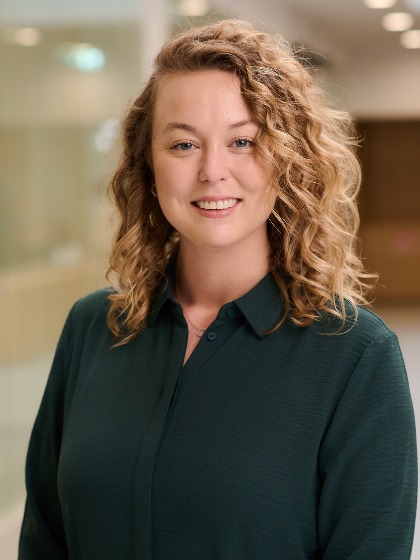
Functie
Assistant Professor
Kees Bastmeijer is Director of the Arctic Centre and Professor of Arctic and Antarctic Studies at the Faculty of Arts, University of Groningen, the Netherlands (0,8) and Board Member of the Wadden Academy, Leeuwarden, the Netherlands (0,2). His research... lees meer

Contact
Functie
Hoogleraar Arctische en Antarctische Studiën en Directeur Arctisch Centrum
European Law, Energy law, Microgrids

Contact
j.behrendt rug.nl
Functie
Assistant Professor
Kinderrechten, Mensenrechten, Grondrechten, Europees Recht, Bestuursrecht, Migratierecht, Omgevingsrecht, Waterrecht
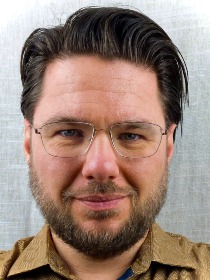
Contact
Functie
Docent en Onderzoeker
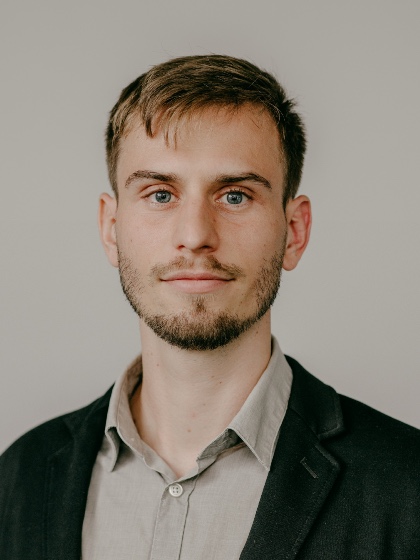
Contact
j.m.bornemann rug.nl
Functie
Universitair Docent Europees Recht
Vakgebied
Europees constitutioneel recht
Europees institutioneel recht
Mededingingsrecht
Staatssteun
Europees institutioneel recht
Mededingingsrecht
Staatssteun

Contact
Functie
Promovenda en docent Europees recht

Internationaal publiekrecht in het algemeen, met bijzondere belangstelling voor en expertise in: internationaal duurzaamheid- en milieurecht; internationale geschilbeslechting; internationaal investeringsrecht; internationaal diplomatiek recht; het recht... lees meer
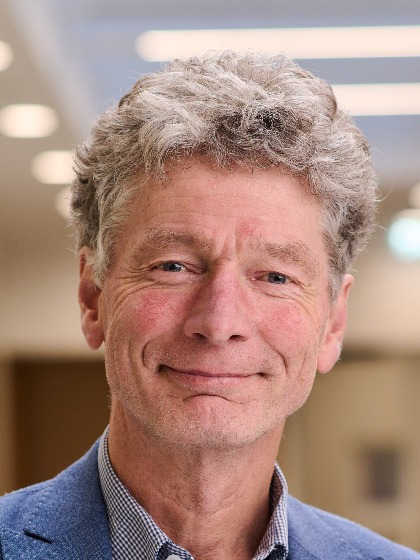
Contact
Functie
Hoogleraar Internationaal Publiekrecht
International Human Rights Law (focus on socio-economic rights), The right to mental health, International Disaster Law/climate disasters & internal displacement, (Mental) health and human rights arguments in climate litigation relating to displacement,... read more
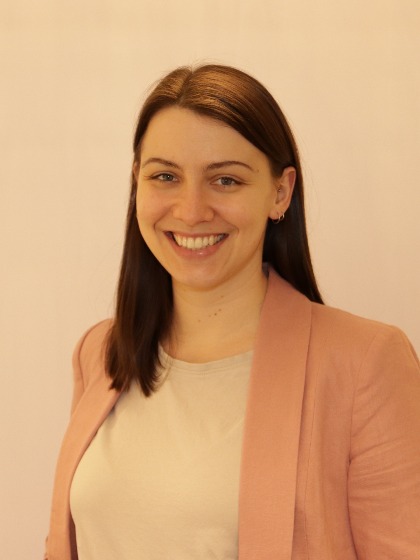
Contact
m.v.c.van.cauwenberghe rug.nl
Functie
Junior Onderzoeker en Docent

Contact
Functie
Universitair Docent

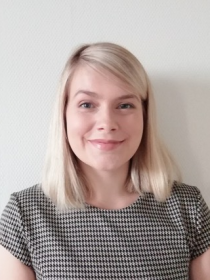
Contact
l.e.elrick rug.nl
Functie
Lecturer/PhD Researcher
Filosofie van het internationale recht
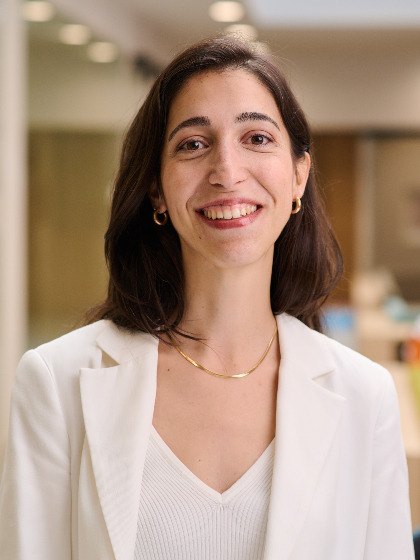
Europees energie- en milieurecht. Speciale focus: Energierechtvaardigheid en participatieve democratie in een H2-economie
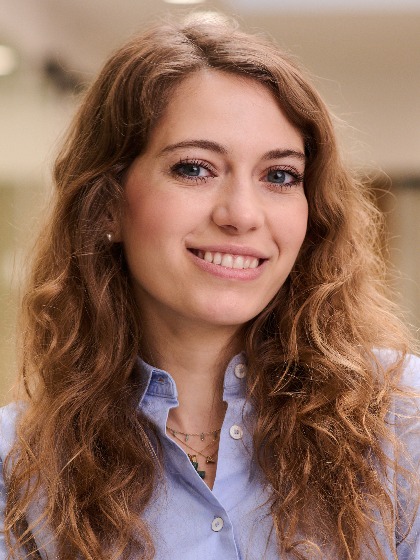
Contact
a.forns.gomez rug.nl
Functie
Public International Law, International Courts and Tribunals, Evidence in International International Courts, Systemic Violence from an International Human Rights Law Perspective, UN treaty bodies
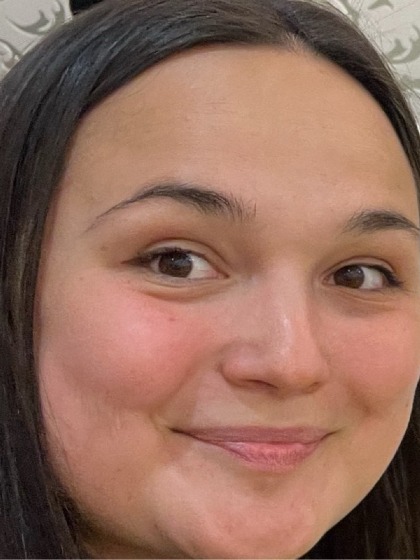
Contact
m.fortuna rug.nl
Functie
Assistant Professor of Public International Law
Materieel en formeel strafrecht, in het bijzonder EU-strafrecht

Contact
Functie
Universitair hoofddocent
EU-strafrecht. Internationale en Europese samenwerking in strafzaken.

Contact
Functie
bijzonder hoogleraar internationaal en Europees strafrecht
EU-recht, i.h.b. de Interne markt; het vrij verkeer van goederen; openbare aanbesteding; EU-douanerecht; EU-belastingrecht; Rechtsbescherming; EU institutioneel recht; EU externe handelsrecht (anti-dumping enz.).

Contact
l.w.gormley rug.nl
Functie
Emeritus Hoogleraar Europees Recht
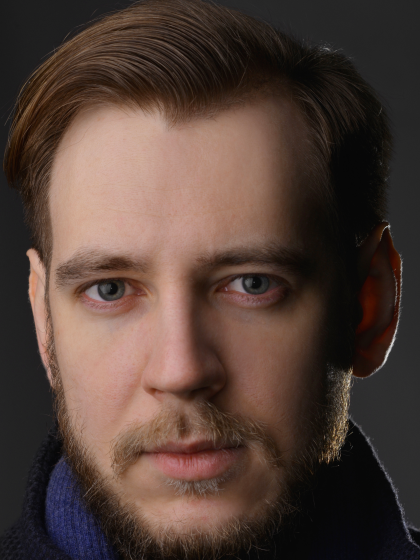
Contact
k.v.gorobets rug.nl
Functie
Docent internationaal recht
Ik werk in de Humboldtiaanse traditie, waarin ik inter- en transdisciplinair onderzoek, onderwijs en maatschappelijke impact combineer. Mijn academisch werk en passie zijn gewijd aan het overkoepelende thema ‘Human Dignity in the Digital Age’.
Mijn... lees meer
Mijn... lees meer
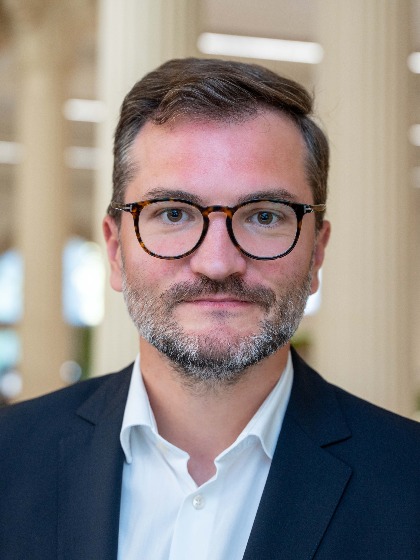
Contact
Functie
Associate Professor 'Human Dignity in the Digital Age'; Programme Director BSc Data Science and Society; Member 'Alliance for Digital Autonomy'

Lucas is als promovendus verbonden aan de afdeling Staatsrecht, Bestuursrecht & Bestuurskunde. Hij is afgestudeerd in Internationaal en Europees recht en heeft twee masteropleidingen afgerond, beide Cum Laude, in Internationaal Strafrecht en Juridische... lees meer
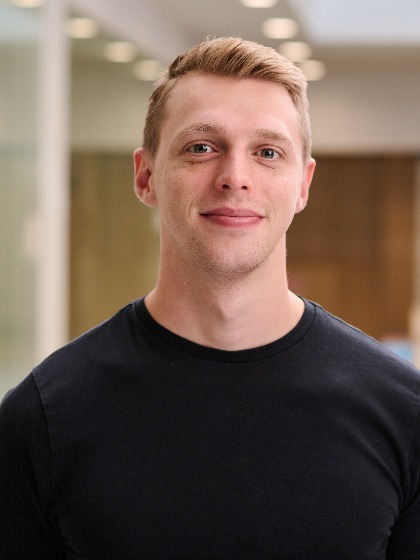
Contact
l.m.haitsma rug.nl
Functie
PhD Candidate Algorithms and Discrimination in Supervision and Enforcement
International and Regional Human Rights; Prohibition and prevention of torture; privatization and human rights; non-state actors under international law and human rights; regulation of essential services and human rights; international investment and... lees meer

Contact
Functie
Assistant Professor International Law and Human Rights
- Public international law
- International and transnational human rights law
- Socio-economic human rights
- Planetary Health / Environmental health law / Climate Change (Litigation)
- Access to modern energy services / energy poverty
- Disaster management /... lees meer
- International and transnational human rights law
- Socio-economic human rights
- Planetary Health / Environmental health law / Climate Change (Litigation)
- Access to modern energy services / energy poverty
- Disaster management /... lees meer
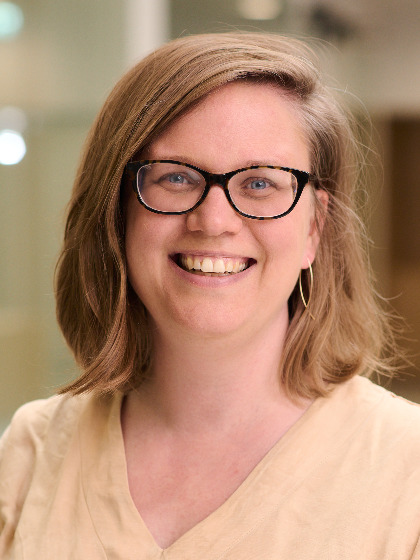
Contact
Functie
Associate Professor International Law / Chair of Groningen Center for Health Law
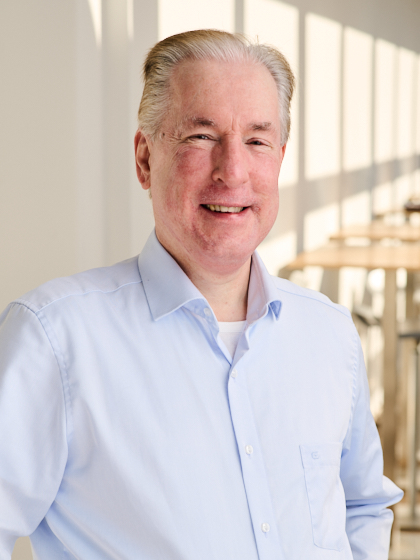
Contact
Functie
Associate Professor in International Law
Vakgebied
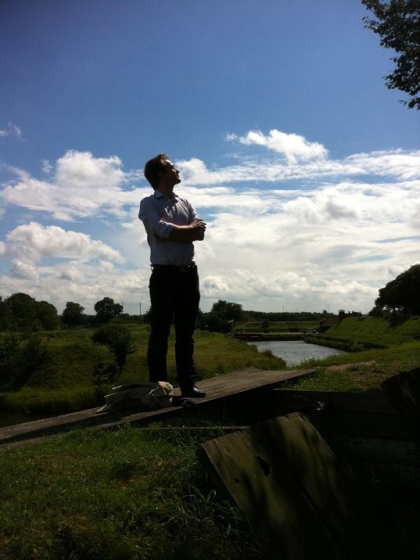
Contact
m.c.huiskes rug.nl
Functie
Docent en promovendus
Tessa joined the Groningen Centre for Health Law in October 2024 as a PhD candidate on the alcohol regulation project, where she is researching the optimal balance between allowing, regulating and prohibiting the use, sale and distribution of alcohol on... read more
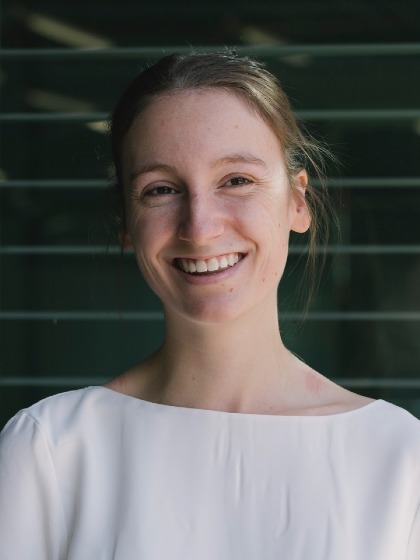
Contact
t.j.jager rug.nl
Functie
PhD kandidaat ZonMw alcoholregulering
Europees en Nederlands Aanbestedingsrecht I Europees recht I Interne Markt Recht I Duurzaamheid I Sociale Ongelijkheid I Klimaatverandering
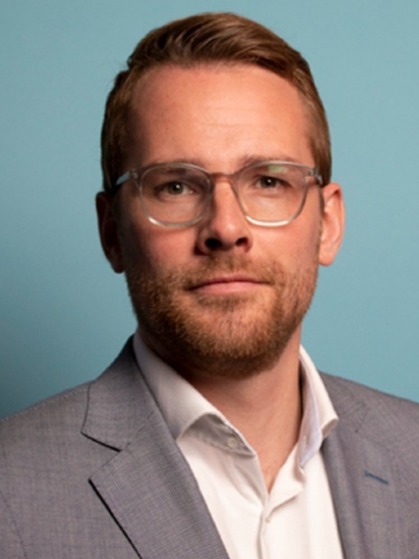
Contact
w.a.janssen rug.nl
Functie
Bijzonder Hoogleraar Aanbestedingsrecht
Vakgebied
Biometrics, Fundamental Rights, Data Protection, AI, Deepfakes
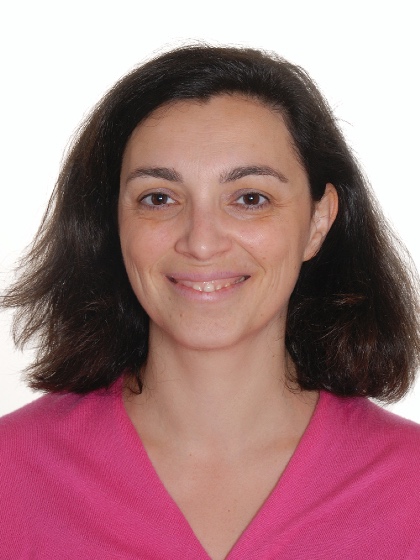
Contact
c.a.jasserand rug.nl
Functie
Assistant Professor
Manolis Kotzampasakis analyzes climate and energy regulations, by combining legal research with interdisciplinary methods and economic insights. His PhD research has focused on the greenhouse gas emissions from international maritime transport and, more... read more
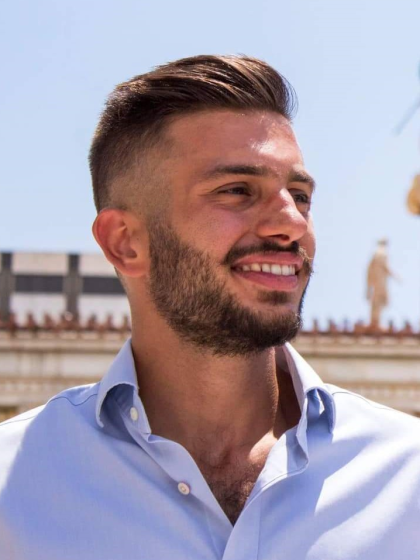
Contact
m.kotzampasakis rug.nl
Functie
Postdoctoraal Onderzoeker
Recht van de Europese Unie
Externe betrekkingen van de EU
EU handelsbeleid and -praktijk
Handel, duurzamheid en gender
Externe betrekkingen van de EU
EU handelsbeleid and -praktijk
Handel, duurzamheid en gender
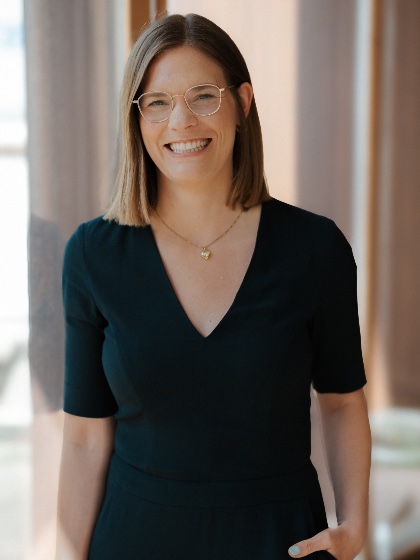
Contact
g.kubek rug.nl
Functie
Universitair Docent Europees Recht
Vakgebied
Research: Artificial intelligence, business and human rights; International human rights law; Law and governance; Horizontal effect of international human rights law
Teaching: Public international law; International human rights law; Legal English
Teaching: Public international law; International human rights law; Legal English
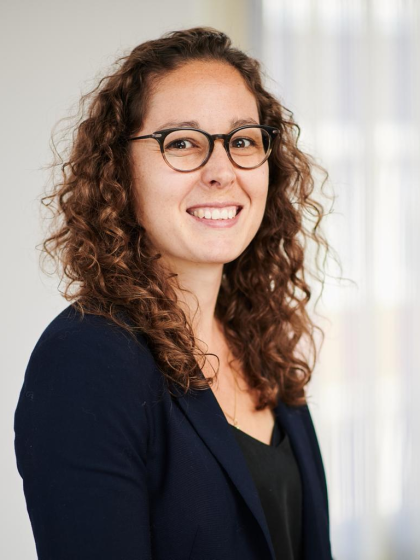
Contact
c.l.lane rug.nl
Functie
Assistant Professor of Public International Law
Digital open source evidence of international crimes
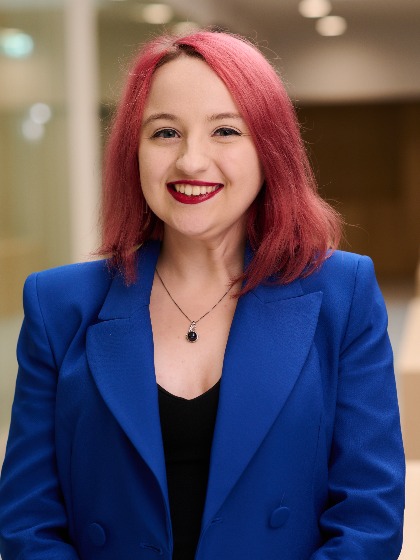
Contact
Functie
PhD
Internationaal publiekrecht in het algemeen, zorgvuldigheid in internationaal recht, zelfbeschikkingsrecht van volken in internationaal recht, rechten van inheemse volken in internationaal recht, internationaal milieurecht, internationale mensenrechten,... lees meer
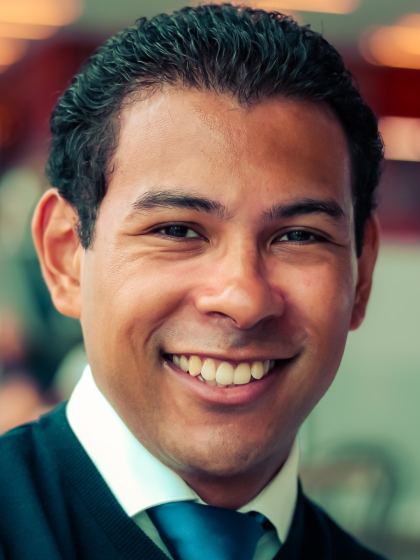
Contact
m.f.malaihollo rug.nl
Functie
Promovendus Internationaal Recht
I specialise in law, public policy, and politics. My academic focus is on digital transition and the translation of internationally created norms into governance practices at the local levels. I work on both climate transitions (with a focus on human... lees meer
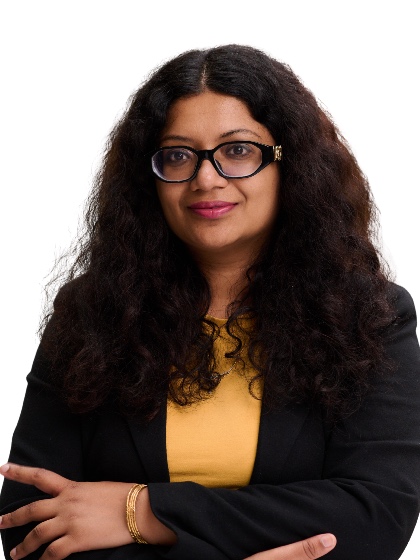
Contact
r.manuvie rug.nl
Functie
Assistant Professor
Health, Technology, Fundamental Rights
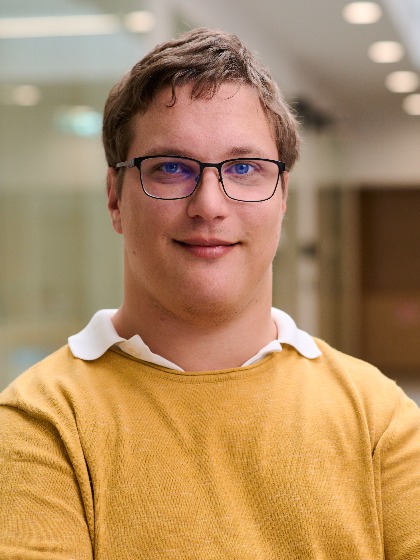
European Law, European Competition Law and Data protection law
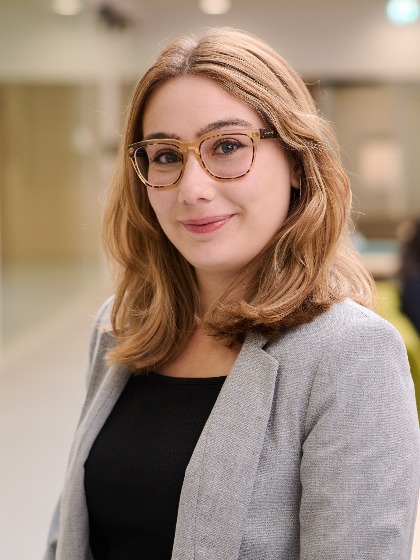
Contact
a.h.marquez.daly rug.nl
Functie
Promovenda
Law of Treaties, Sources of International Law, Interpretation, International Dispute Settlement, State Responsibility, Theory of International Law, International Environmental Law, Human Rights & Humanitarian Law NOTABLE AWARDS & POSITIONS Prof. Merkouris... read more
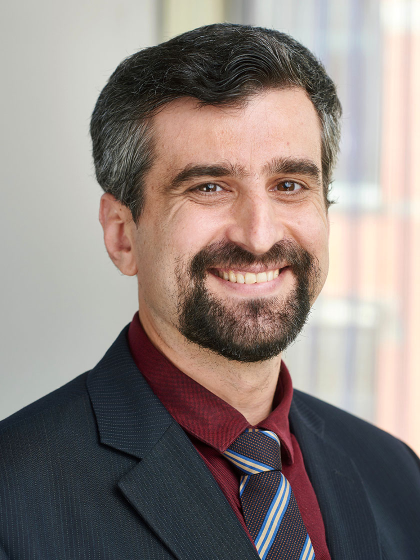
Contact
Functie
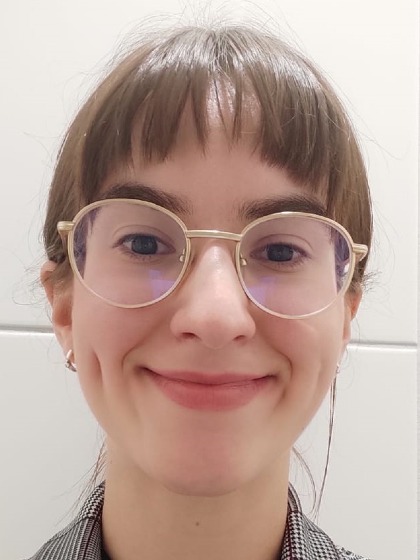
Internationaal Publiekrecht
Internationaal gewoonterecht
Internationale geschillenbeslechting
Kritische internationale rechtstheorie
Innovatie in juridisch onderwijs
Internationaal gewoonterecht
Internationale geschillenbeslechting
Kritische internationale rechtstheorie
Innovatie in juridisch onderwijs
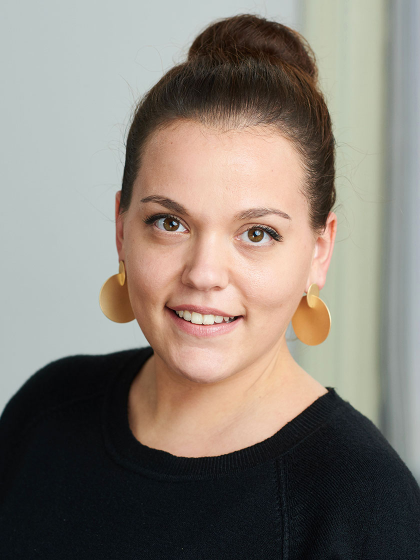
Contact
Functie
Assistant Professor of Public International Law
Public International Law ; International Human Rights Law ; Law of International Organizations
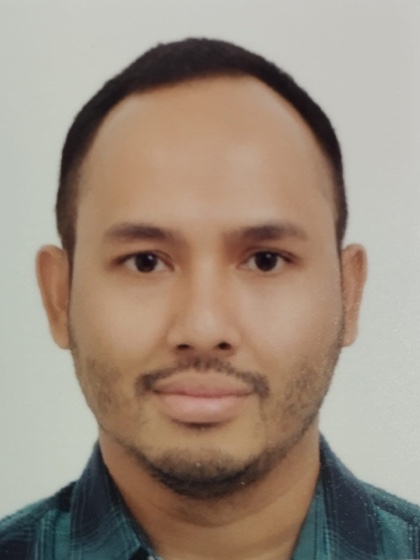
Werkplek surveillance, Mensenrechten en arbeidsrecht, Arbeidsverhoudingen, Privacywetgeving, Gegevensbescherming
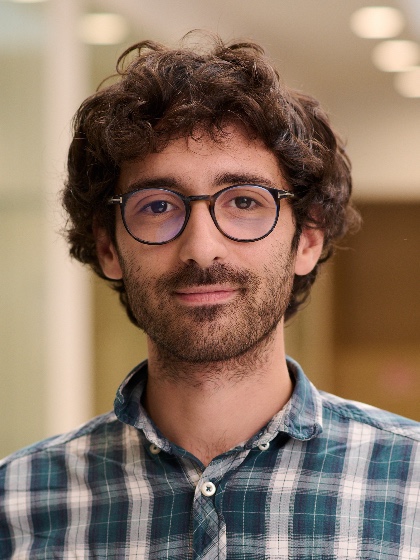
Contact
m.mole rug.nl
Functie
Researcher
IT-recht, privacy en gegevensbescherming, cybersecurity, telecommunicatierecht, internationaal/Europees recht, mensenrechten, humanitair recht, staatsaansprakelijkheid, private militaire en veiligheidsbedrijven.
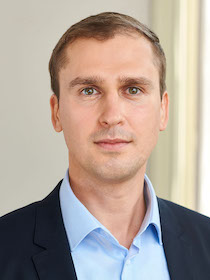
Contact
Functie
Universitair hoofddocent
Internationaal Recht, Internationaal Milieurecht en Recht van de Zee

Contact
Functie
Directeur Onderzoek
Vakgebied
Energierecht
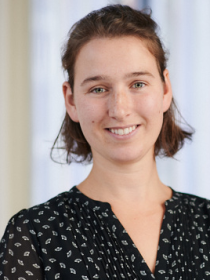
Contact
Functie
Universitair Docent / Assistant Professor
Energy law
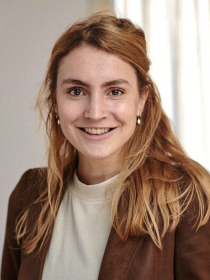
Contact
e.r.van.nieuwkoop rug.nl
Functie
PhD Researcher
Public International Law, Climate Litigation in Japan
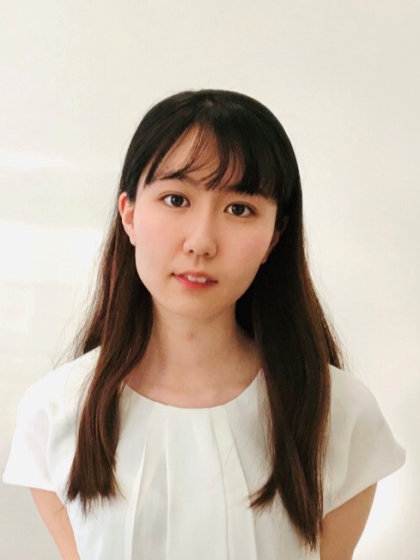
Contact
y.nishikawa rug.nl
Functie
Onderzoeker
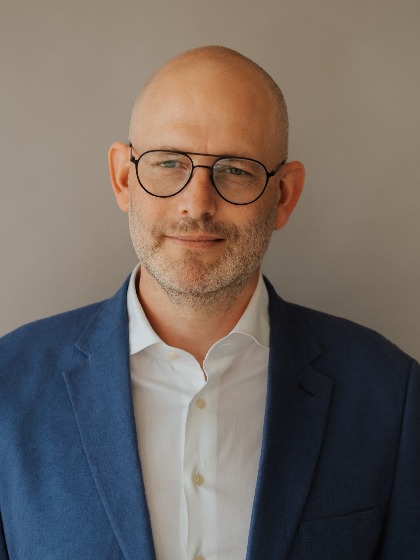
Contact
j.odermatt rug.nl
Functie
Gasthoogleraar
European consumer law, European private law, private law theory
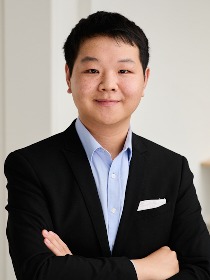
Contact
Functie
Promovendus / Docent
Energy law, focussing on the use of green hydrogen for sustainable mobility

Contact
k.a.pailman rug.nl
Functie
PHD Researcher
Data protection, civil liability for non-material damage, European law, international human rights law, criminal law
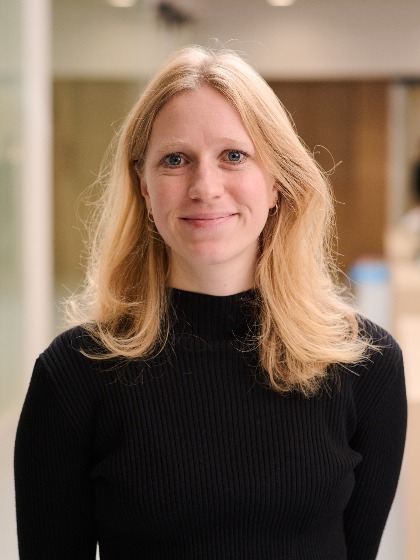
Contact
s.salziger rug.nl
Functie
PhD Candidate
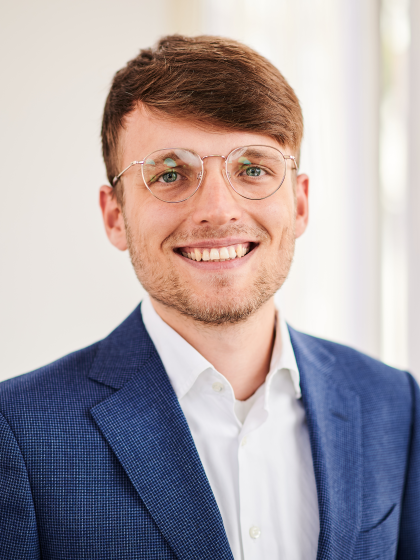
Contact
Functie
Universitair docent internationaal privaatrecht en vergelijkend contractenrecht
Child Soldiers, International Humanitarian Law, International Criminal Law, Conflict-Related Sexual Violence
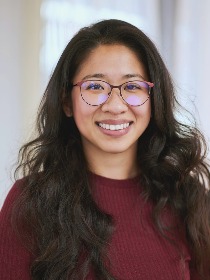
Contact
c.m.seah rug.nl
Functie
Criminalization of Homelessness, Right to Adequate Housing, Human Rights, Jurisprudence of the European Court of Human Rights (particularly Article 8)
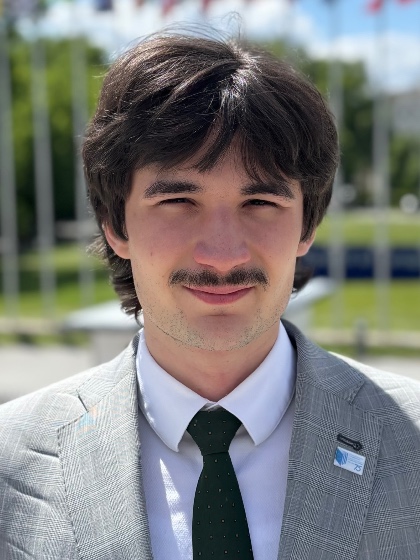
Contact
m.sedlar rug.nl
Functie
PhD Researcher
Energy Law and Policy, Law of the Sea, Offshore Wind, International Dispute Resolution
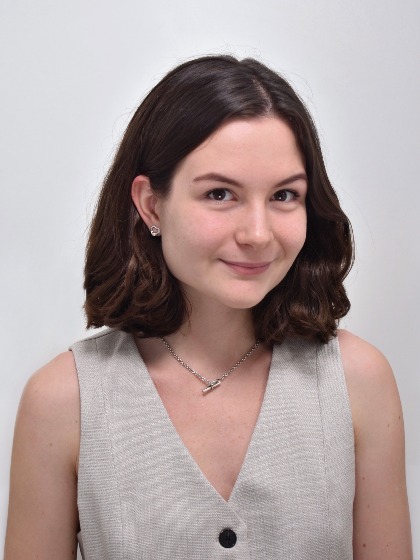
Contact
y.sergeeva rug.nl
Functie
Phd Researcher
oorlogsmisdadigers; genocideplegers; terroristen; destructieve leiders; autocratie; daders; internationale misdrijven; internationale criminologie, internationaal strafrecht; internationale vrede en veiligheid; mensenrechten; gewapende conflicten en... lees meer
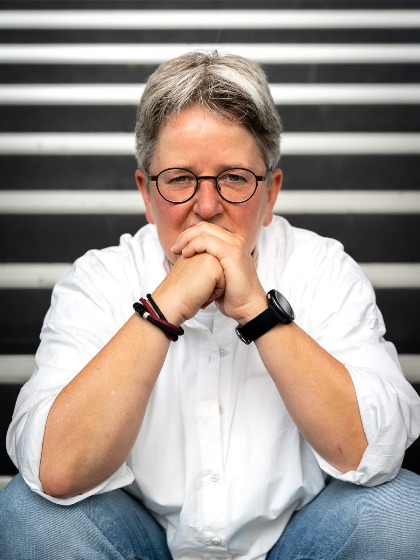
Contact
a.l.smeulers rug.nl
Functie
hoogleraar internationale misdrijven
Human rights
Digital forensics
Technology law
Data protection
Digital forensics
Technology law
Data protection
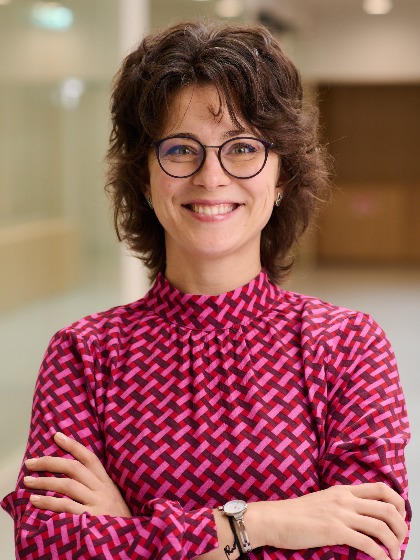
Contact
r.stoykova rug.nl
Functie
Assistant Professor
Het recht om te demonstreren (zie www.demonstratierecht.nl)
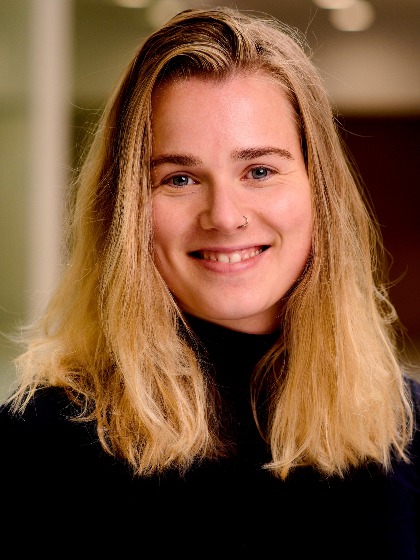
Contact
n.j.l.swart rug.nl
Functie
Promovenda en docente
Ik ben hoogleraar gezondheidsrecht in internationaal perspectief bij de Faculteit Rechtsgeleerdheid. Mijn onderzoek, ingebed in het Groningen Centre for Health Law, bevindt zich op het snijvlak van het gezondheidsrecht, internationaal recht en... lees meer
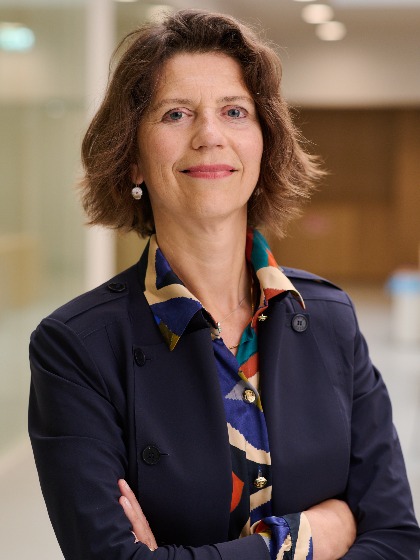
Contact
Functie
Hoogleraar, Gezondheidsrecht in Internationaal Perspectief
International human rights law, Inter-American System of Human Rights, collective rights, environmental human rights
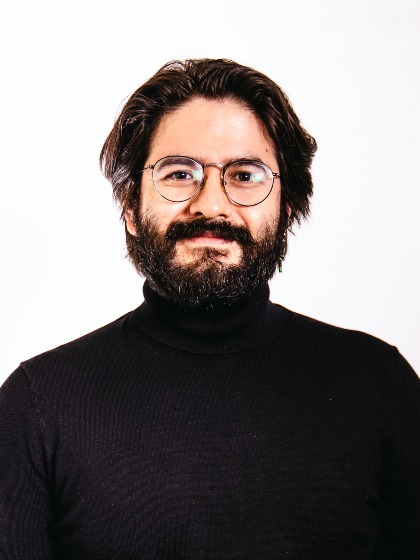
Contact
p.a.trincado.vera rug.nl
Functie
PhD Candidate Transboundary Legal Studies
International Human Rights Law; European Human Rights Law; National Human Rights Institutions (NHRIs); European Court of Human Rights; Council of Europe; Separation of Powers
![A. (dr. Aikaterini [Katerina]) Tsampi, PhD](/staff/a.tsampi/photo.png?unique=1611052073802.jpg)
Contact
Functie
Assistant Professor of Public International Law
In het bijzonder:
- Culturele rechten
- Rechten van inheemse volkeren
- De teruggave/repatriëring van cultureel erfgoed met een koloniale achtergrond
- Cultureel erfgoed/kunstrecht (in het bijzonder UNESCO-verdragen en vergelijkende perspectieven op... lees meer
- Culturele rechten
- Rechten van inheemse volkeren
- De teruggave/repatriëring van cultureel erfgoed met een koloniale achtergrond
- Cultureel erfgoed/kunstrecht (in het bijzonder UNESCO-verdragen en vergelijkende perspectieven op... lees meer
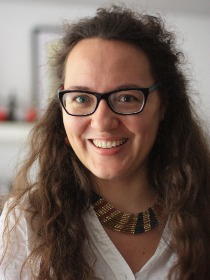
Contact
Functie
Universitair docent
Publiek Internationaal Recht, Internationaal Mensenrechtenrecht, Discriminatierecht, Internationaal Investeringrecht, Sociaal-Juridische Experimentele Methodologieën

Contact
k.r.turnbull rug.nl
Functie
Docent & PhD Onderzoeker
Vakgebied
Public International Law, International Human Rights Law, Inter-American Human Rights System, Jus Cogens, Immunity of State Officials
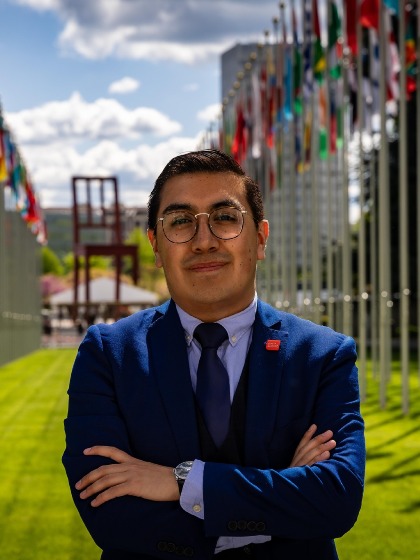
Contact
d.e.uribe rug.nl
Functie
PhD Candidate
Regelgeving inzake kunstmatige intelligentie; Europees recht; Technologie-recht
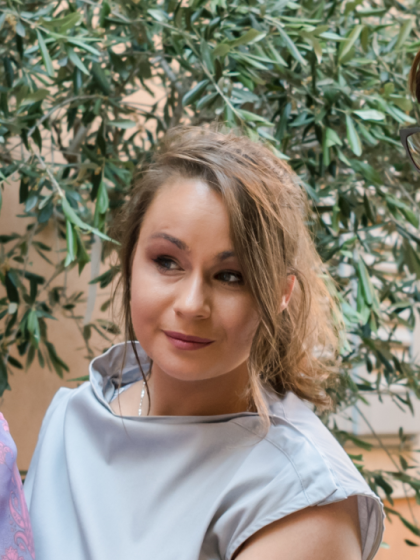
Contact
Functie
Universitair docent - Transparentie, AI
Contract law, property law, European law, consumer law, comparative law, and technology law.
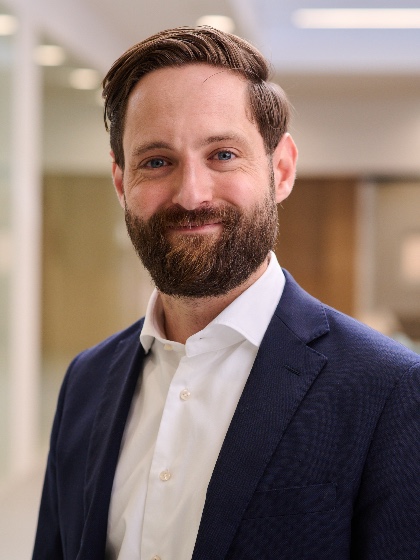
Contact
j.verstappen rug.nl
Functie
Universitair Docent
Recht van de Europese Unie, cultuur, gereguleerde markten, audiovisuele sector, staatssteun, sport
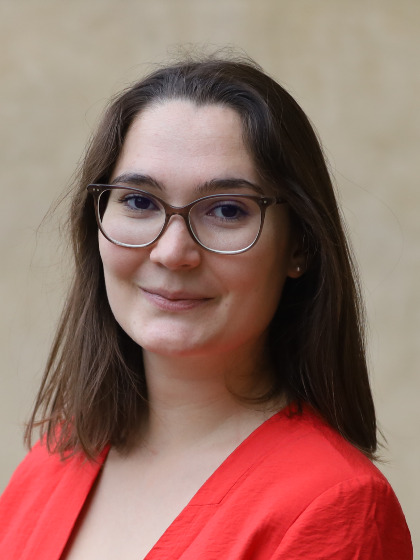
Contact
a.a.villanueva rug.nl
Functie
Universitair Docent
Gegevensbeschermingsrecht; Mededingingsrecht; Europese mensenrechten; Recht van de Europese Unie
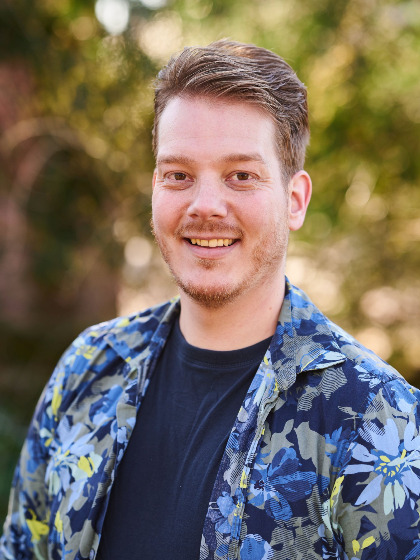
Contact
Functie
Universitair Docent Technology Law en Mededingingsrecht
Vakgebied
Data protection, Technology Law and Administrative Law

Contact
m.a.warthon.ocsa rug.nl
Functie
PhD candidate
Law and Economics, Climate change Law (in particular Emissions Trading Design, Linking, Allocation and Competition), Competition law and Public Procurement in EU, China and Japan
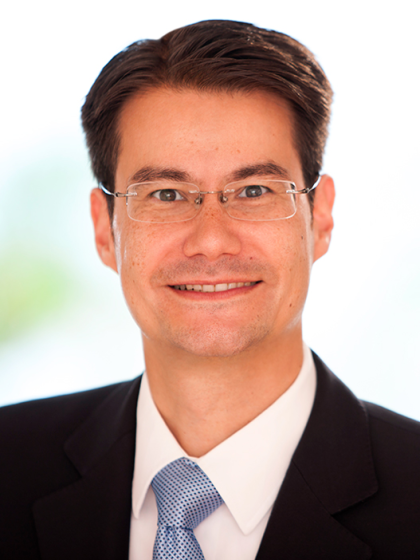
Contact
Functie
Professor of Law and Economics
Onderzoek: de zorg voor oorlogslijken onder internationaal recht
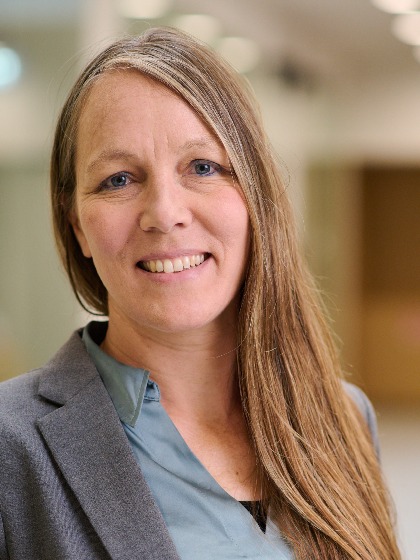
Contact
w.wels rug.nl
Functie
PhD student
Op mijn persoonlijke website vind je mijn expertise, publicaties, events en veel meer! EU recht; EU externe betrekkingen; Europees buitenlands, veiligheids- en defensiebeleid (GBVB / GVDB); recht der internationale organisaties
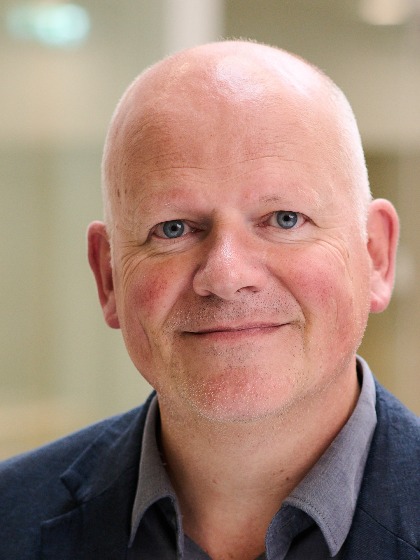
Contact
Functie
Vicedecaan en Hoogleraar Europees Recht
Vakgebied
Fundamentele rechten tijdens noodsituaties
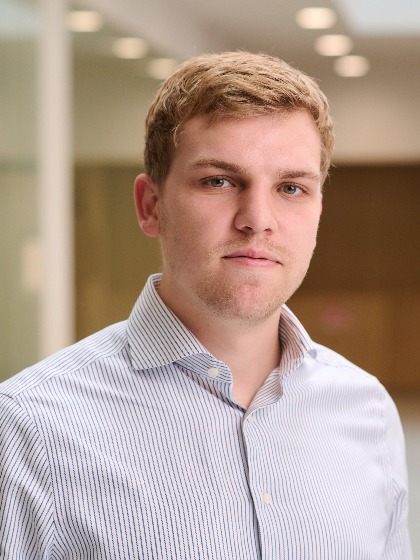
Contact
Functie
Promovendus/docent
Procederen voor de Nederlandse rechter over internationale vorderingen met een privaatrechtelijk karakter. Internationale onrechtmatige daad, (massa-)schadeclaims en internationale contracten.
Nederlands en Europees Internationaal Privaatrecht,... lees meer
Nederlands en Europees Internationaal Privaatrecht,... lees meer
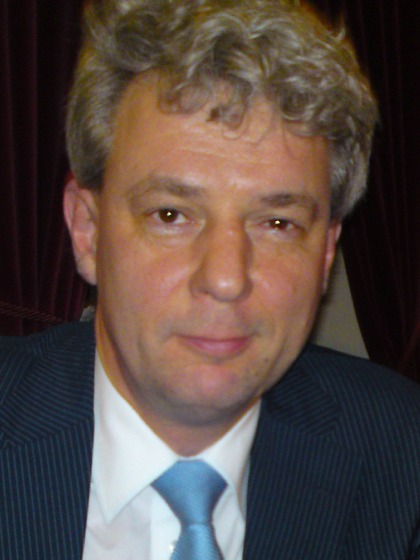
Contact
Functie
Hoogleraar Privaatrecht, Internationaal Privaatrecht en Internationaal Vervoerrecht
As a PhD candidate at the University of Groningen, I am pursuing my passion for international law. I have a strong academic background in public international law, having completed my LLM at Utrecht University and my LLB at Ankara University, where I was... read more
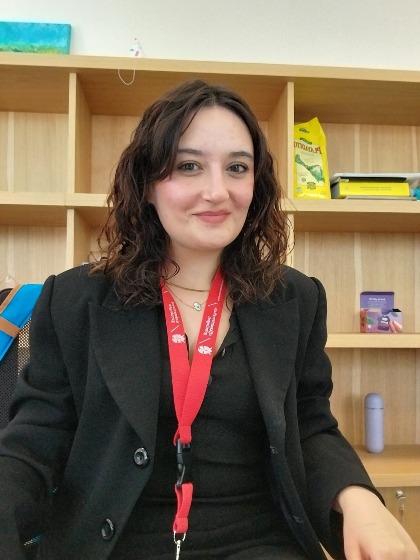
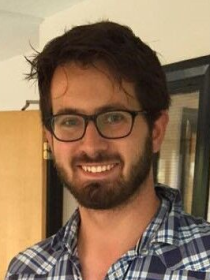
Contact
a.j.zuidema rug.nl
Functie
PhD Candidate / Lecturer
View this page in: English
